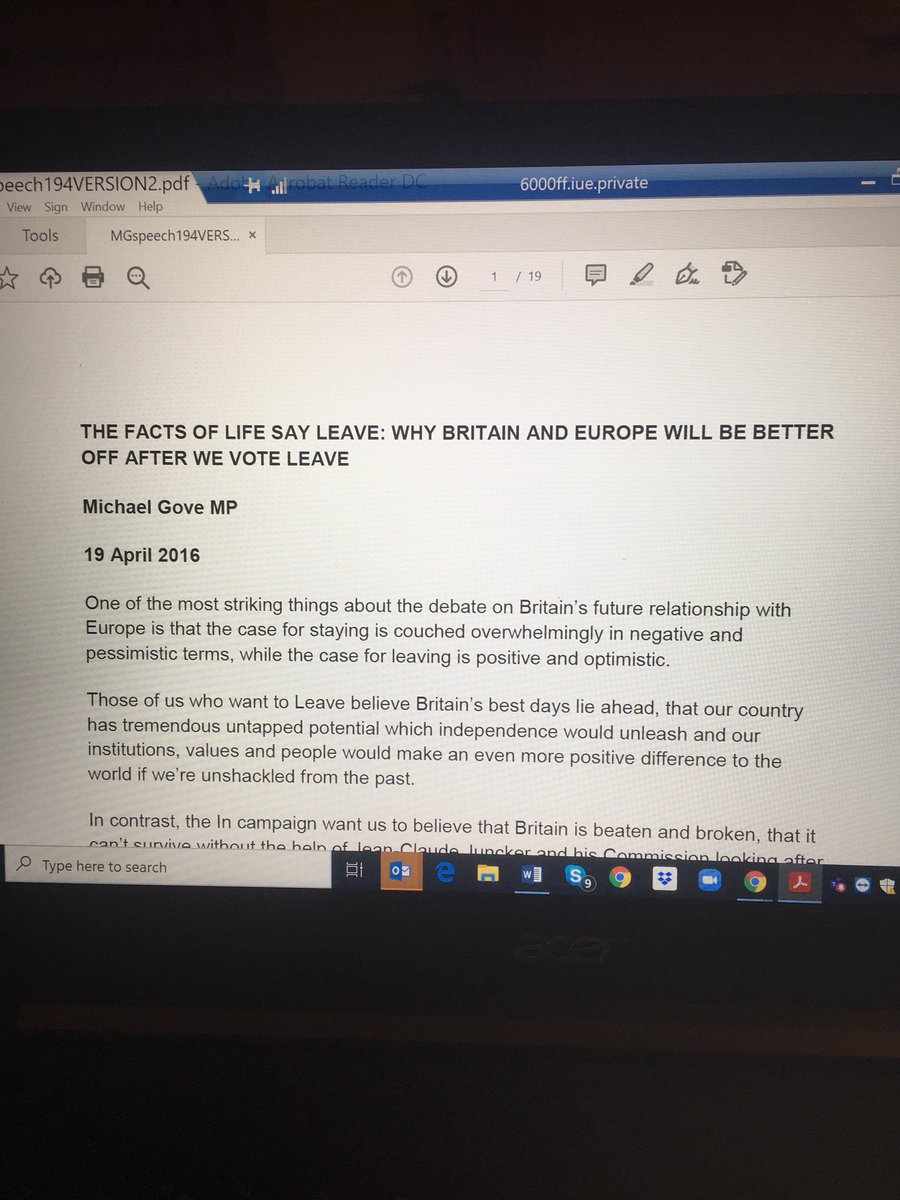
Not often I read something @Telegraph that I feel has to be taken on but Vernon Bogdanor’s opinion today is one such piece. Bogdanor is one of the leading scholars of the British Constitution & has an in-depth knowledge of Irish history so there are no excuses @KingsCollegeLon 

1. His assertion that the Northern Ireland Protocol has fallen at the first whiff of grapeshot is evidence of a scholar rushing to judgement just 4 weeks into the implementation of a complex set of legal provisions @BrigidLaffan
2. He rightly identifies problems the Protocol causes for GB-Northern Ireland economic exchange but argues that any flexibility EU would agree to would not solve the problem because the problem for him is constitutional. For him the Protocol cannot work @BrigidLaffan
3. He suggests an escape route-he suggests that in tandem with the Assembly elections the Assembly could insist on bringing forward the consent mechanism from 2024 to 2022. In other words next year. @BrigidLaffan
4. He argues that the Protocol is a nationalist solution forgetting that a majority of the Northern Irish electorate voted against Brexit. The Protocol is a direct result of the kind of Brexit favoured by London-there the responsibility lies @BrigidLaffan
5. He essentially favours a land border on island of Ireland knowing what that land border represents & the number of crossings-he knows it & still thinks it is an acceptable solution. @BrigidLaffan
6. We really need to remember what a visible border represented & what it looked like before the GFA. Yes it was a militarised border with big installations. See below @BrigidLaffan 



7 Bogdanor suggests that it is a disreputable argument to suggest that a return to a visible border might lead to violence-it would be very destabilising & dangerous.Peoplewho live on the border would not consent to it. Look at Brexit vote-solid blue on the border @BrigidLaffan 

8. Bogdanor argues that checks on the land border would be less onerous to administer than checks on the Irish Sea. People live on land not at sea. This is truly shocking frim someone of Bogdanor’s standing. @BrigidLaffan
9. He ends by saying ‘Today’s argument is about the cohesion of the kingdom’- nothing about stability & peace on island of Ireland. Nothing about the UK’s responsibility to ensure that Brexit does not harm its neighbours. @BrigidLaffan
10. Breixt is not of Ireland’s making. GB especially England needs to have some sensitivity to the history of the island & to their historical responsibility for the way U.K. exercised power in Ireland. @BrigidLaffan
11.This is a truly disreputable piece from someone who writes from a knowledge not ignorance. Bogdanor places constitutional cohesion above stability of the most troubled part of his UK. Well Ireland will not consent to being collateral damage in England’s search for sovereignty
• • •
Missing some Tweet in this thread? You can try to
force a refresh



